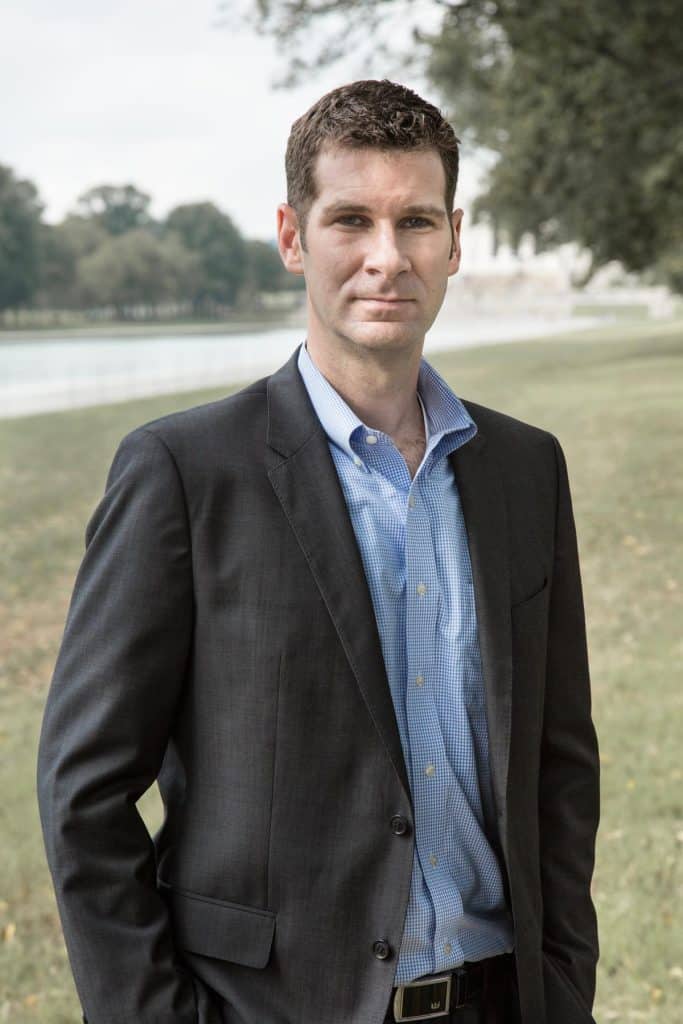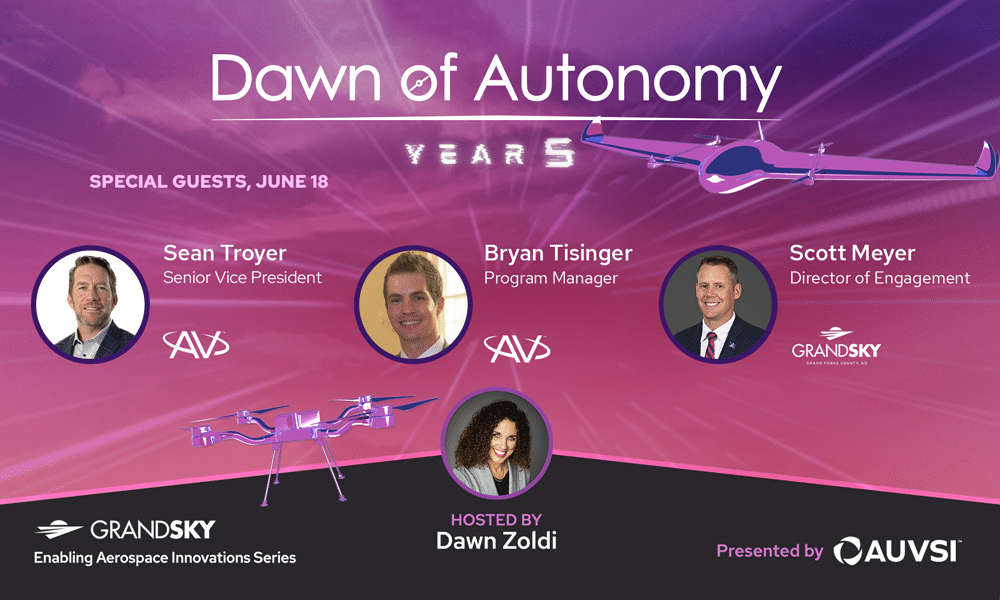Singer spotlights increasingly urgent questions for society as AI revolution picks up speed
May 5, 2021 | Amy French

Futurist Peter Warren Singer drew lessons from the past in Wednesday’s XPONENTIAL 2021 keynote as he challenged his audience to grapple with the overarching questions that the prospect of an unmanned revolution raises for society.
The questions, Singer noted, are increasingly urgent, given that advances toward the revolution have picked up dramatic speed during the pandemic.
He cited a statistic from Stanford University’s AI Index, global investment in artificial intelligence grew 40 percent from 2019 to 2020, compared with growth of only 12 percent from 2018 to 2019. That statistic reflects what average consumers have witnessed in the form of heightened use of remote technologies for things like distance learning, telemedicine and drone delivery.
“If we’re headed into what’s been called everything from the new Industrial Revolution to a new Machine Age, my sense is that we have three big questions that we have to work out as part of that story,” said Singer, who is a strategist at the New America foundation and author of multiple books of fiction and nonfiction that deal with the advent of AI and its potential ramifications.
The first question: How do we handle the impact of the revolution on our economy?
Unmanned systems offer tremendous opportunities for financial growth, Singer emphasized, but emerging AI technologies are also expected to render many jobs obsolete, potentially displacing large numbers of workers. He cited a study by Oxford University that concluded 47 percent of 702 professions would be disrupted over the next generation.
“Think back to the last Industrial Revolution,” Singer said. “You had economic winners and losers on the individual level all the way up to the political level … (so) how do we ensure that stories of human winners are the ones that play out?”
The second question: How will the revolution change our sense of right and wrong – our laws and ethics?
Two focus areas within this question, Singer said, are machine permissibility, or what we decide to allow autonomous systems to do on their own; and machine accountability, or how we determine both who owns the fruits of autonomous labor and who owns the blame and consequences if something goes wrong.
The third question: How will we handle the security vulnerabilities that may come with the revolution?
This question, Singer said, is made especially complicated by the growing Internet of Things – the roughly 9 billion objects currently online and empowered to receive and transmit information on our behalf.
The IoT holds tremendous positive potential, Singer emphasized. Then came the, “but.”
“Unfortunately, we’re … making many of the same mistakes that we made with the first generation of the internet. We are not baking security into design sufficiently on scale. And there’s little to no regulation out there,” Singer said. He pointed out that someone who hacks a networked object might be able to gain control of other networked objects and associated data. As an example, Singer cited cyber attacks on Israel’s water supply.
A common thread running through all of the questions that Singer spotlighted, he said, was the pivotal issue of trust and how to earn it – trust in both the reliability of unmanned technologies and in the decision-making and intentions of the institutions and individuals who control it.
To underscore the importance of trust, Singer pointed out the controversy that arose after the New York Police Department used a robotic dog in its response to a Bronx home invasion. While many officers were excited about the technology and its potential, residents expressed concerns about how it could be used in their community.
“If we want to reach assured autonomy, … it’s all about the meaning of (trust) and what it takes to get there,” Singer said.
How we as a society answer these questions will determine how historians tell the story of our time, Singer said, emphasizing that people today have a great opportunity to shape the narrative.
“The important part of this story,” he said, “is to realize that we are only at the start of it.”
- Industry News


